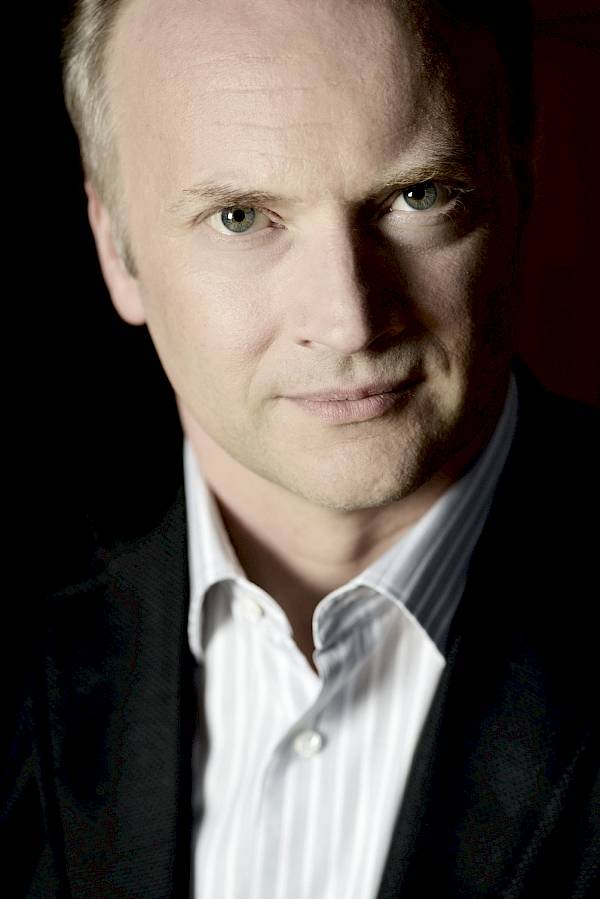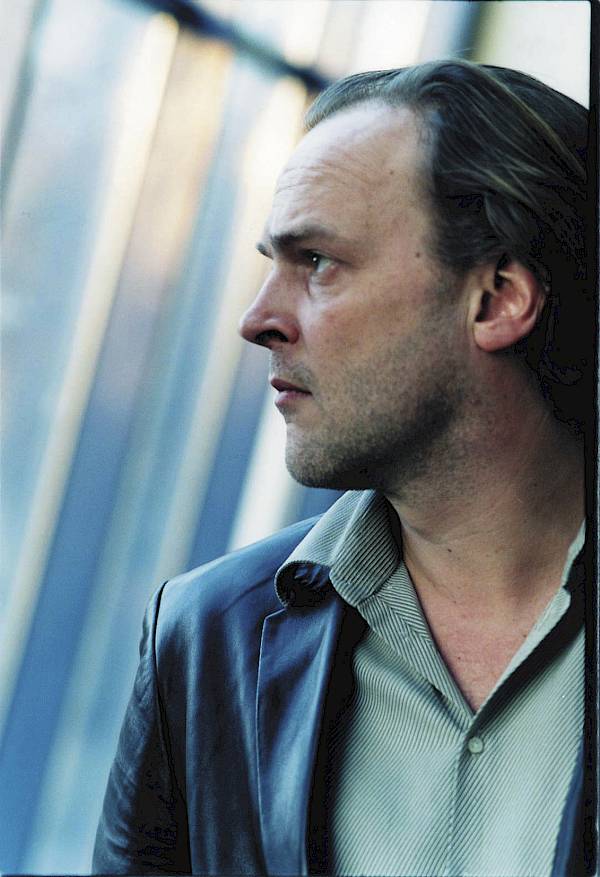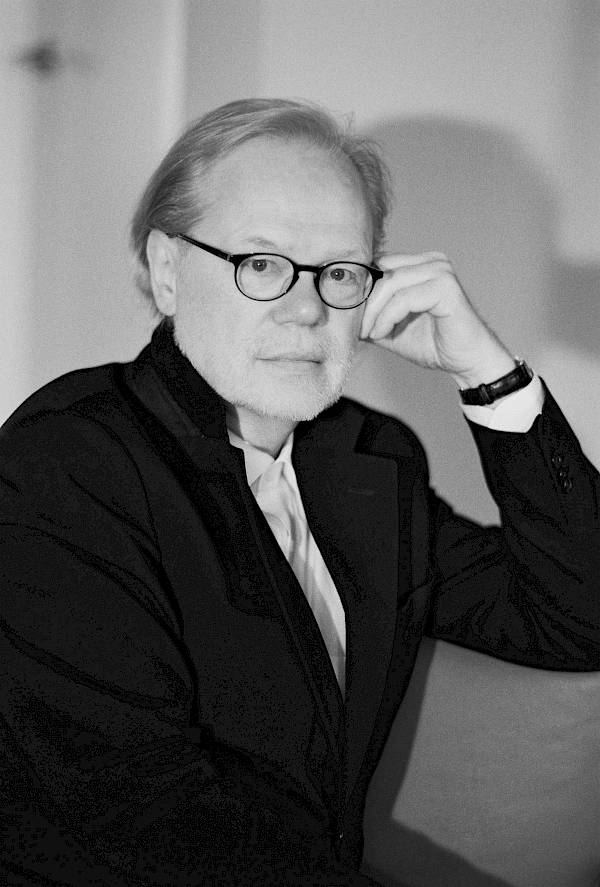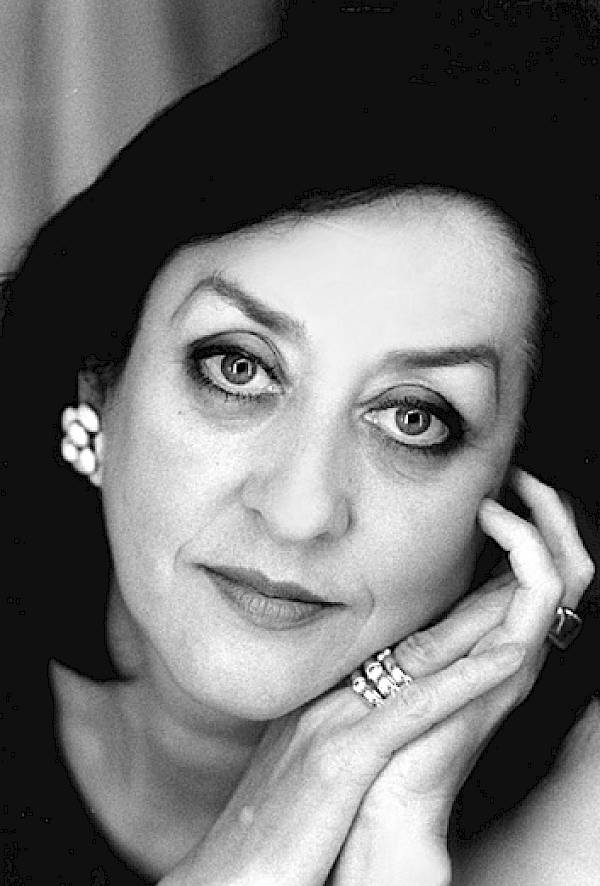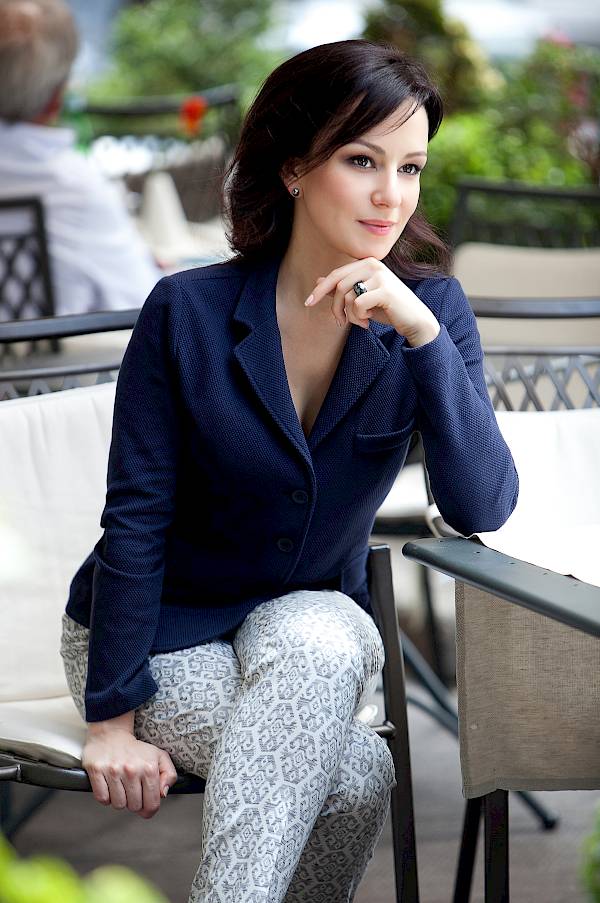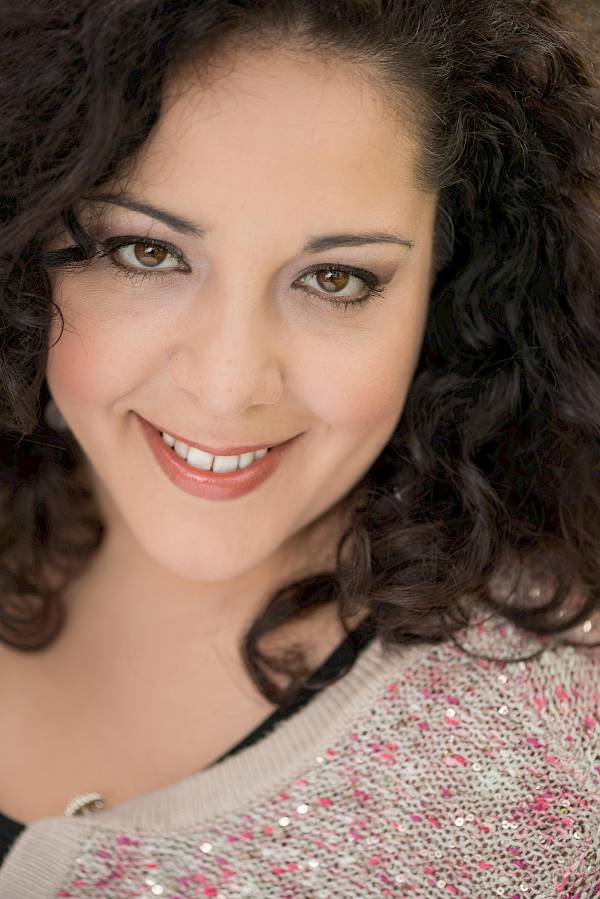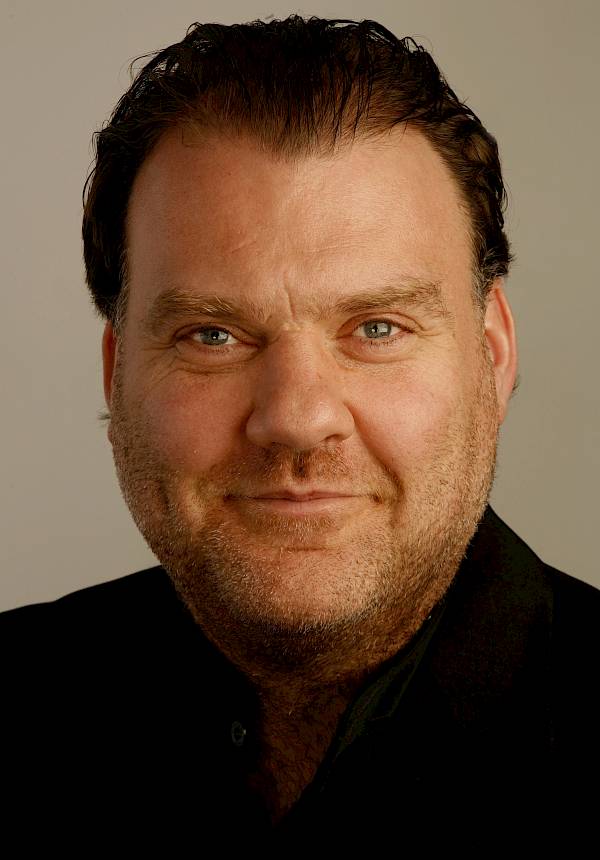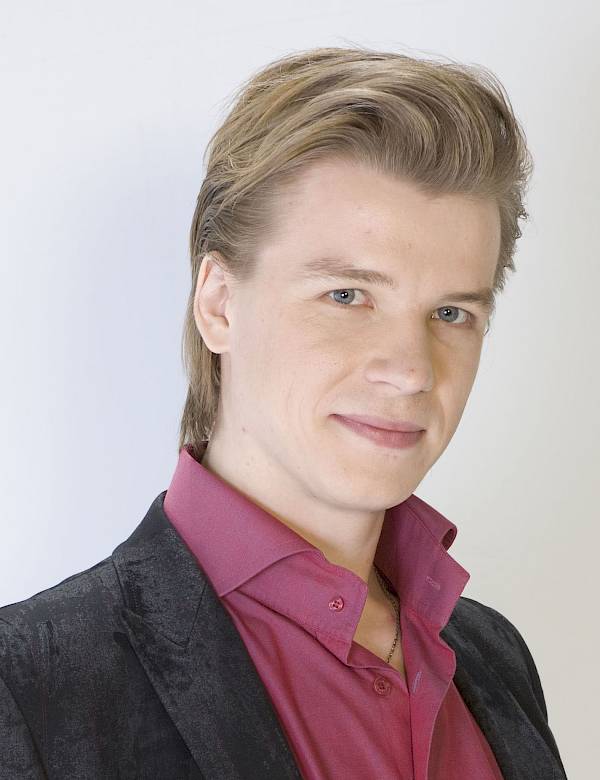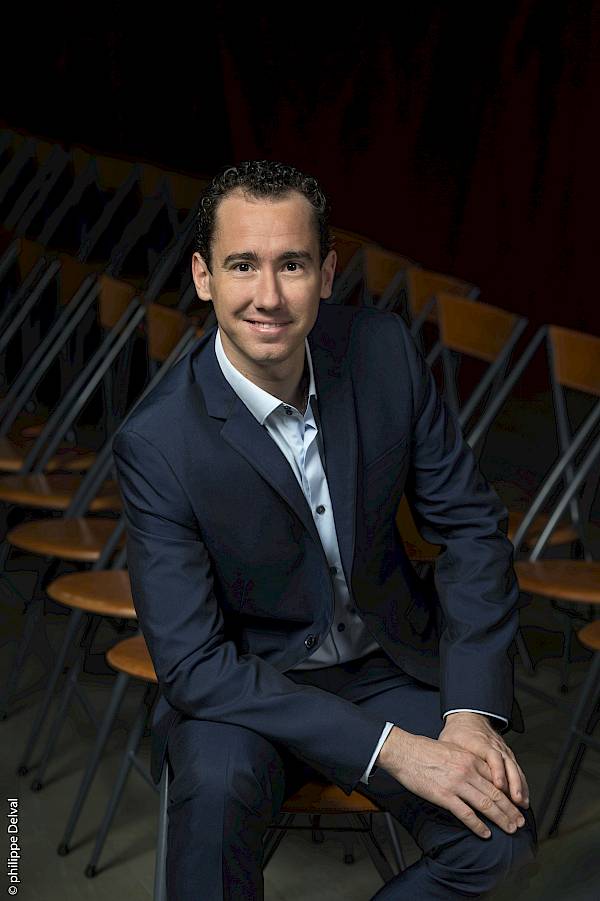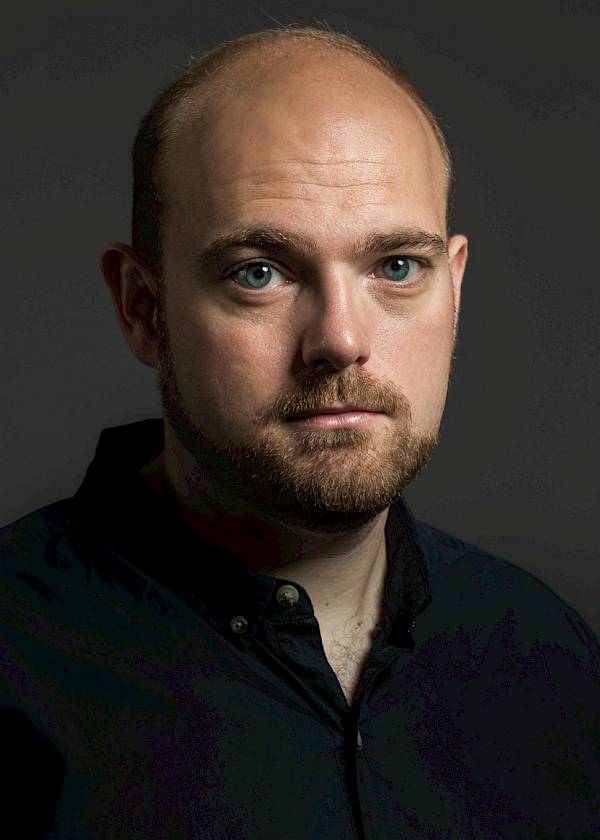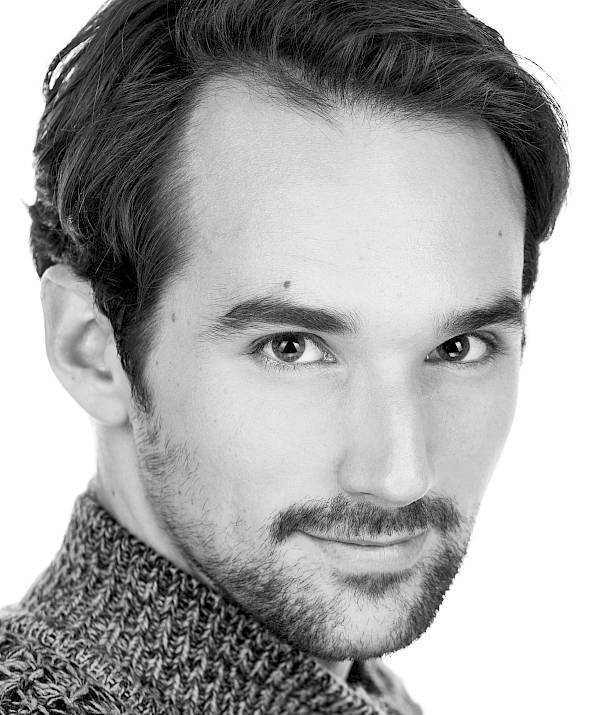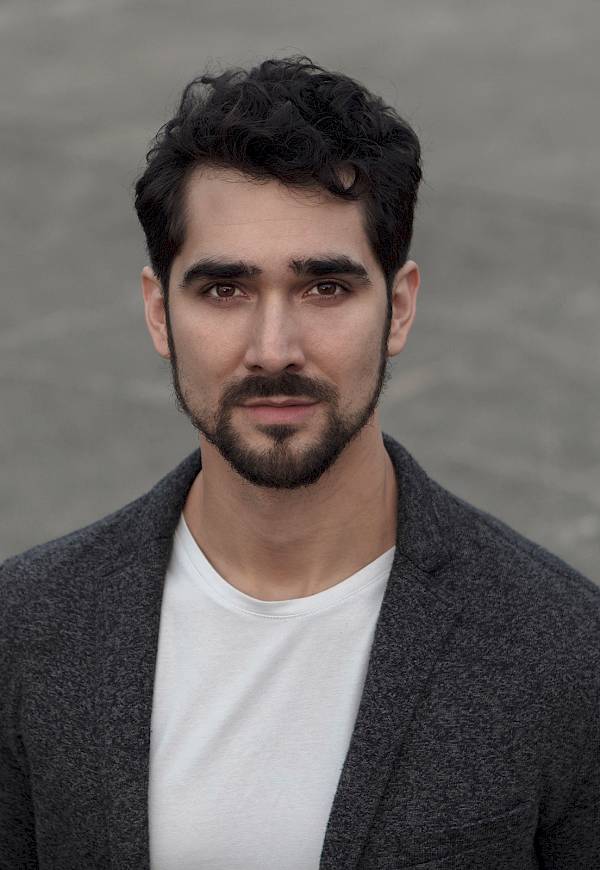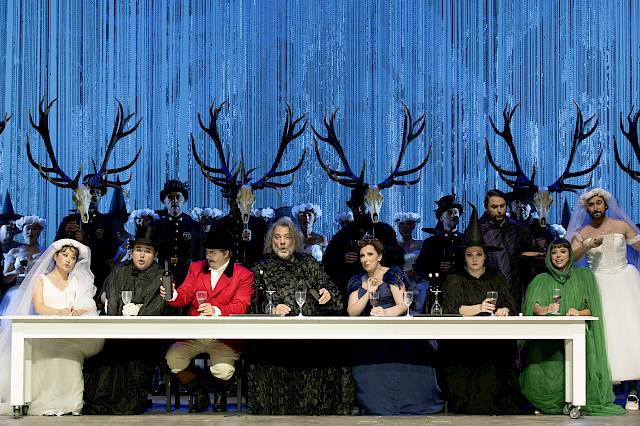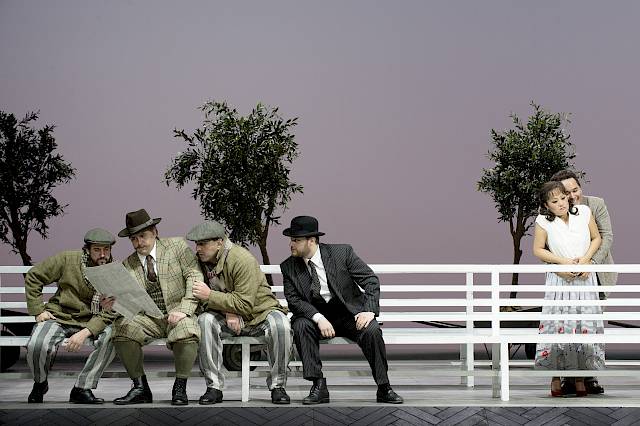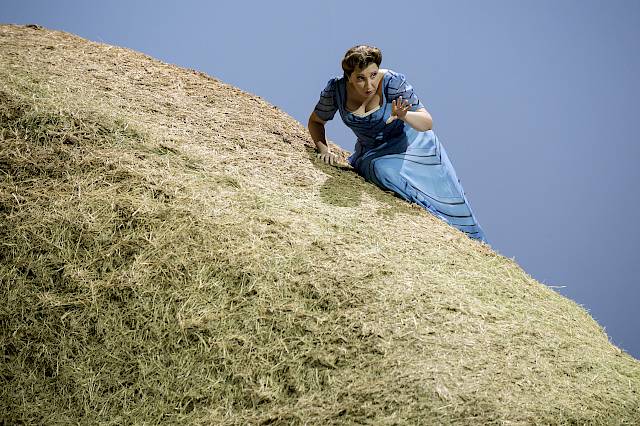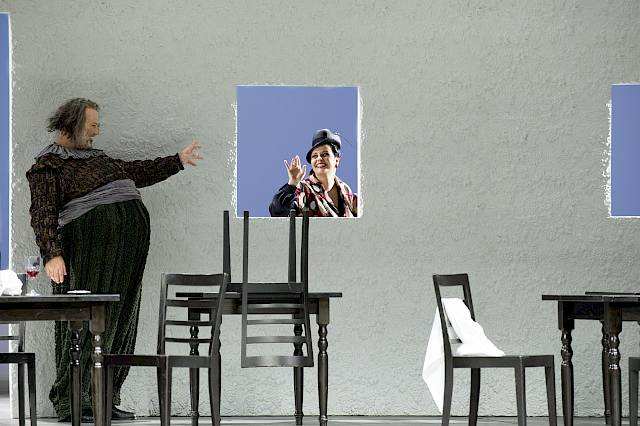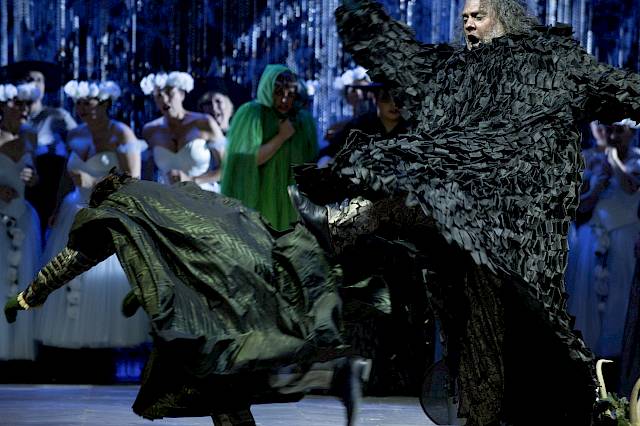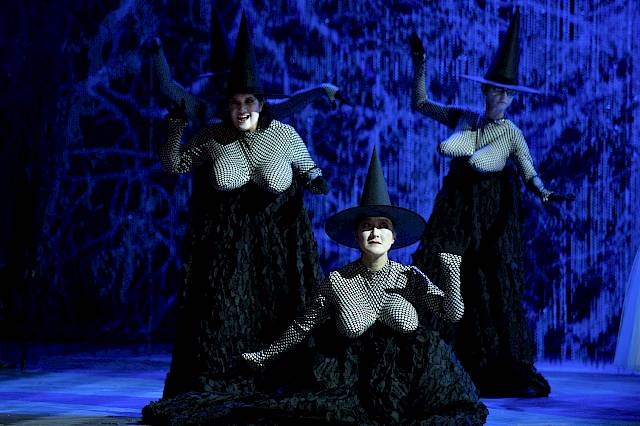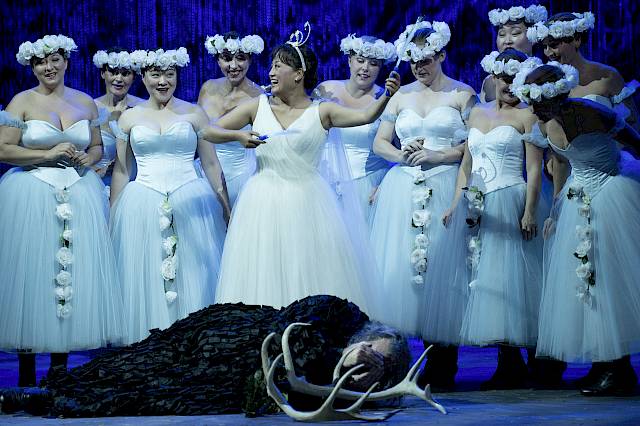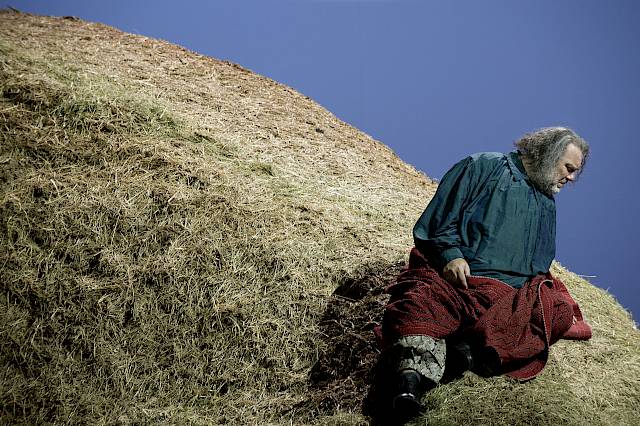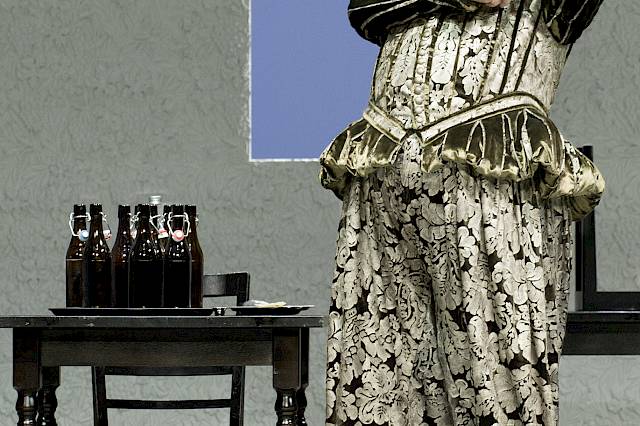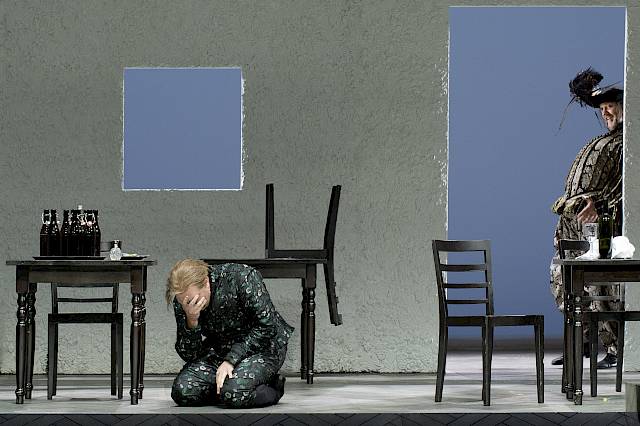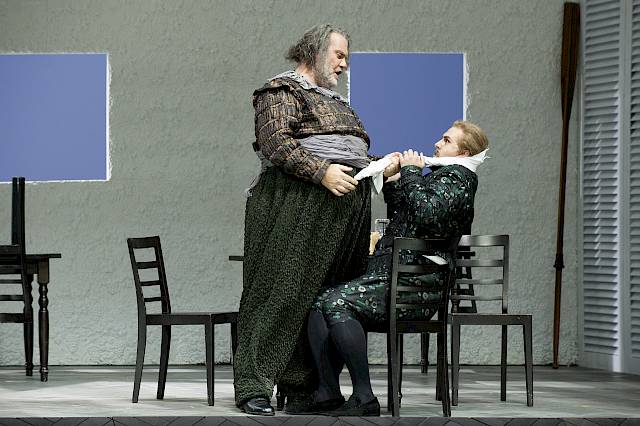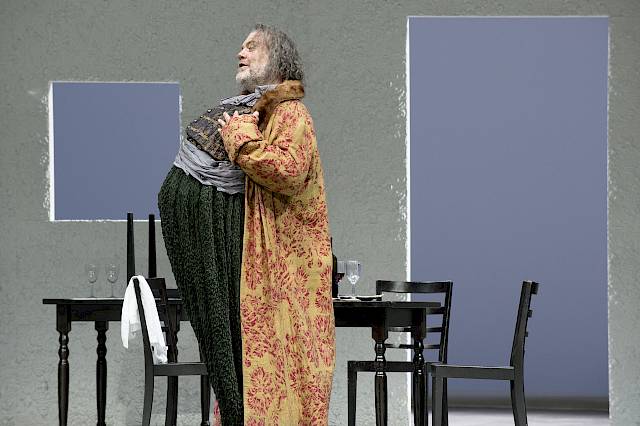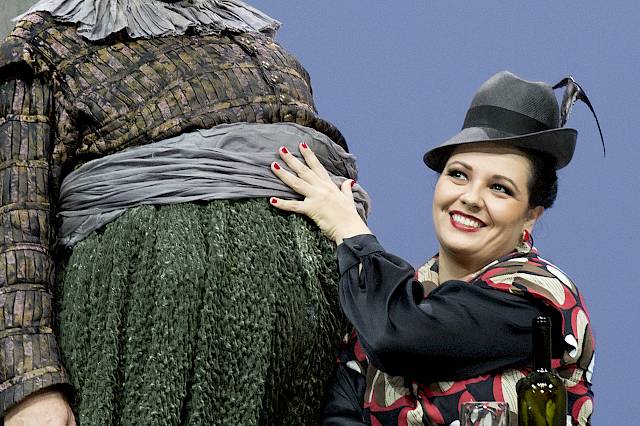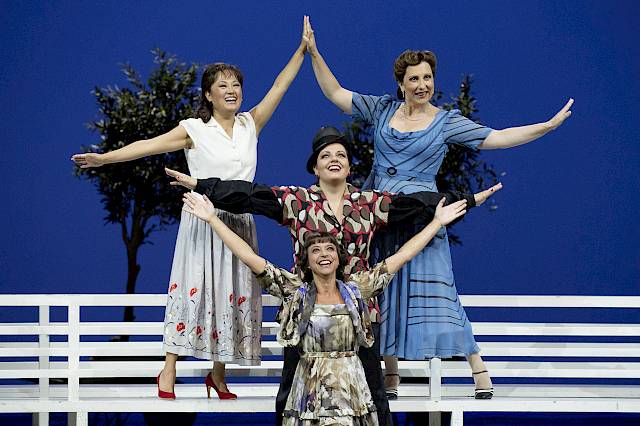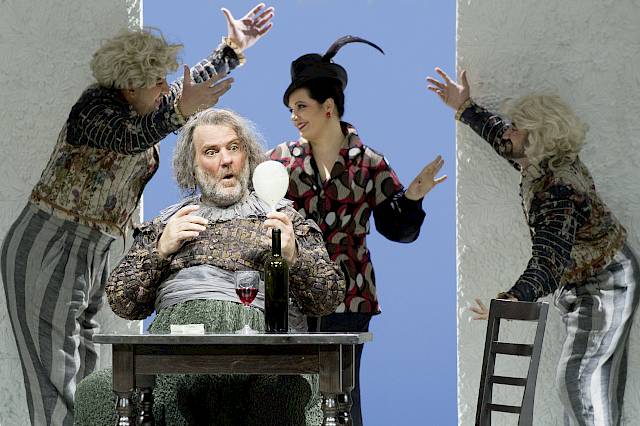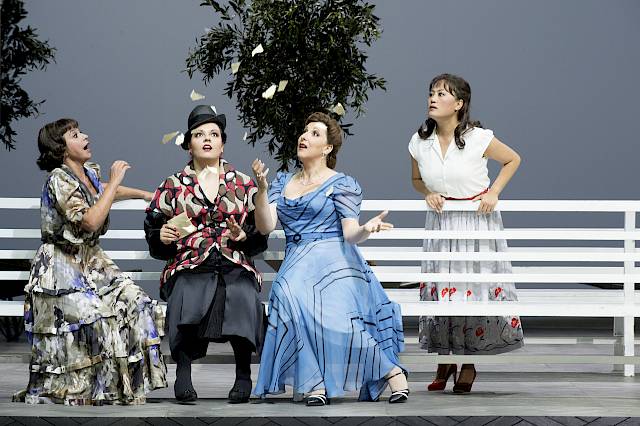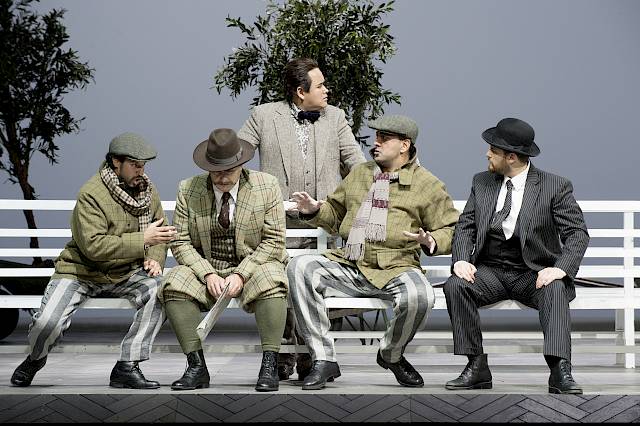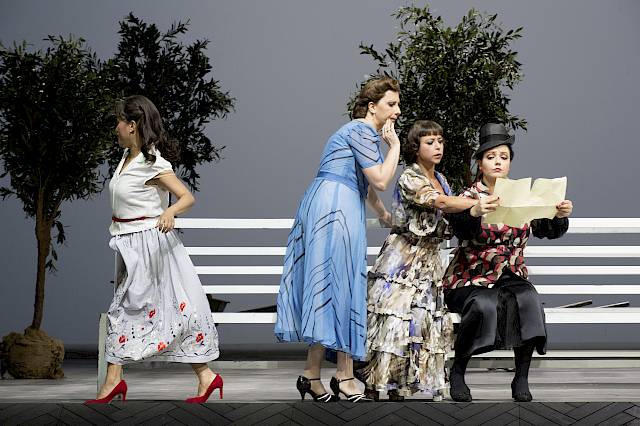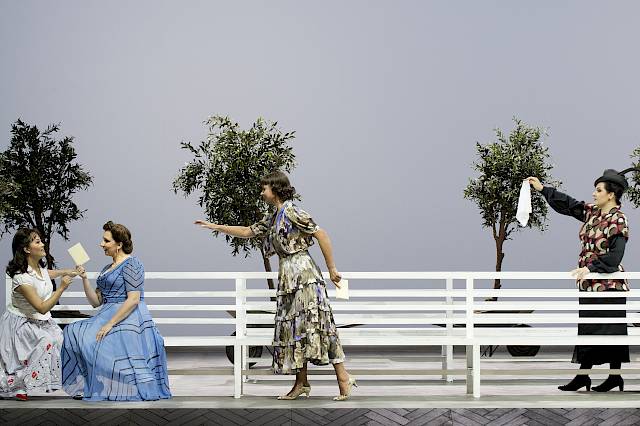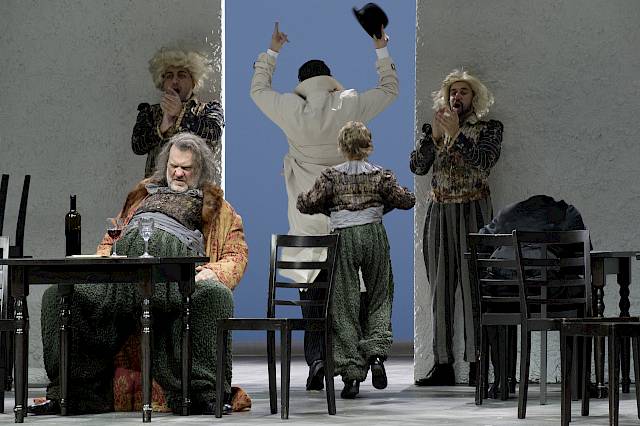Abstract
«King of bellies!», «Monster!», «Voracious whale!», are just a few of the flattering descriptions the Merry Wives of Windsor use to style Sir John Falstaff, the portly title character in this, Giuseppe Verdi’s final opera. The impoverished cavaliere depends on the kindness (and purses) of the rich bourgeoisie around him to appease his insatiable hunger for life. So he writes two identical love letters, hoping they’ll bring him closer to his goal. Falstaff has no sense of duty or moral responsibility – and yet he’s loved all the same for his primordial vitality. Even a brutal basket toss into the Thames (at the hands of Alice and Meg, in revenge for those love letters) only makes him despair temporarily. A warm glass of mulled wine makes everything better. «The world is but fun, and man but a fool» was Verdi’s final word on the matter, bringing his nearly 80 years of life to a conclusion. He ended his compositional life with Falstaff, which followed both Otello and a predominantly tragic oeuvre. The score for Falstaff is a sweeping, youthful, and surprising tribute to humanity.
The Opernhaus Zürich once again claims Welsh superstar and Falstaff bar none Bryn Terfel as its leading man. But Verdi’s opera is nothing if not an ensemble piece, its various figures and voices mingling together: Irina Lungu heads up the Merry Wives of Windsor as Alice, and ensemble member Konstantin Shushakov leads the men as her jealous husband Ford. General Music Director Gianandrea Noseda conducts the Philharmonia Zürich.



